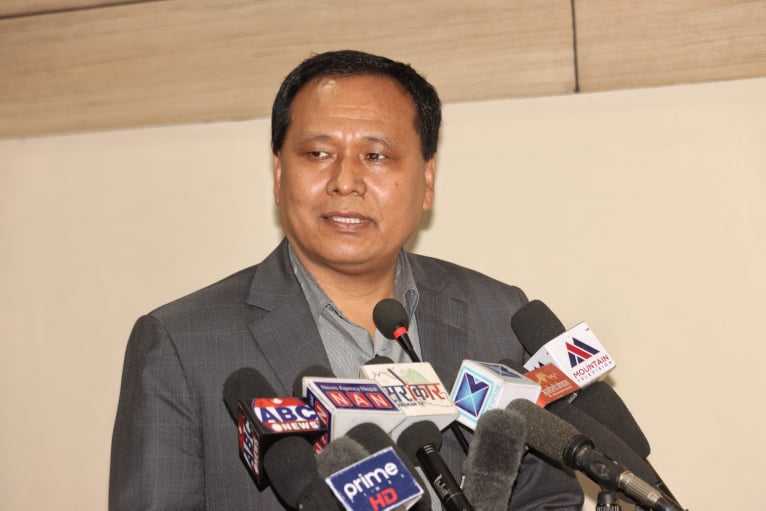
Nepal Electricity Authority (NEA) has claimed that power supply problems suddenly seen for the past three days would be resolved from Thursday midnight.
Managing Director of NEA Kul Man Ghising has said that there would be no load shedding in any industry from Thursday midnight citing that it has already arranged for the import of required electricity from Indian Energy Exchange.
Ghising said that they are preparing to import 7,000 MW hour electricity from India by paying IRs. 20 per unit from today midnight. Per unit cost of power will be Rs. 38 while purchasing at IRs. 20 from India.

There was a problem in supplying power to the industries for three days after the NEA was unable to purchase electricity from the Indian Energy Exchange due to high tariff. "We have bid a tender to procure electricity from India Energy Exchange (IEX) at IRs. 20 per unit with effect from today midnight," he said.
The energy crisis has been seen in the country after NEA failed to import energy due to the sudden rise in energy prices in India beyond the bidding rate proposed by NEA in IEX, he added.
In the meantime, India's NTPC Vidyut Vyapar Nigam has also cut power supply to NEA as per the agreement showing the energy crisis in India.
The price of electricity in India has been rising since the price of coal skyrocketed due to the conflict between Russia and Ukraine.

"It is a short-term crisis seen after 15-20 years. There will be no load shedding and we will not allow it to happen. Even now, we have to increase the load," Ghising said at a press conference organised at NEA office Thursday.
The NEA has been importing around 300-350 MW of electricity from India to meet the demand during this dry season, he said, adding that the energy crisis seen in the international market due to the Russia-Ukraine war has shown its effect in India and Nepal.
At present, the demand for electricity in Nepal is 1,650 MW while the 24-hour peaking production is 1,400 MW, according to NEA.
Last year, it had to import 800 MW of electricity daily from India, but this year it has been importing only 350 MW daily. This is 30 per cent of the total demand.
No increase in tariff
He assured that the NEA would purchase the required amount of electricity from India even facing the losses.
According to him, even if the price increases in India, it will not increase in Nepal. He said that the NEA has not thought of increasing the tariff as it is likely to be a temporary problem only for a month. Ghising said that due to the conflict between Ukraine and Russia, the shortage of coal has hampered power generation across the world and this has affected India as well.
According to him, NEA had earlier purchased electricity from India at different prices from different units. He said that electricity was purchased from India at Rs 1.90 per unit earlier, adding that the average price was Rs. 5 to 6 per unit.
Until a few days ago, Nepal had bought electricity at IRs. 8 per unit due to price hike in India. Currently, NEA is selling electricity to consumers at Rs. 9 per unit.
Power import to cost Rs. 8 bn monthly
Ghising also informed that the NEA would be burdened with an additional Rs. 8 billion in a month while average daily cost would be Rs. 220 million at purchase cost of Rs. 38 per unit.
"We will have to import electricity from India for up to 45 days. Then after, the situation will be favourable to export power when the rainy season begins," he said.
Ghising said that it would not be possible to buy electricity at high price and distribute it in the market for a long time.
He said that increasing consumption of electricity is a must even if there is a crisis for a few days as around 400 MW power will be spilled out during the rainy season consumption and export does not increase.
He, however, said that at least two years will be required to meet the demand of the dry season from our own power generation.
